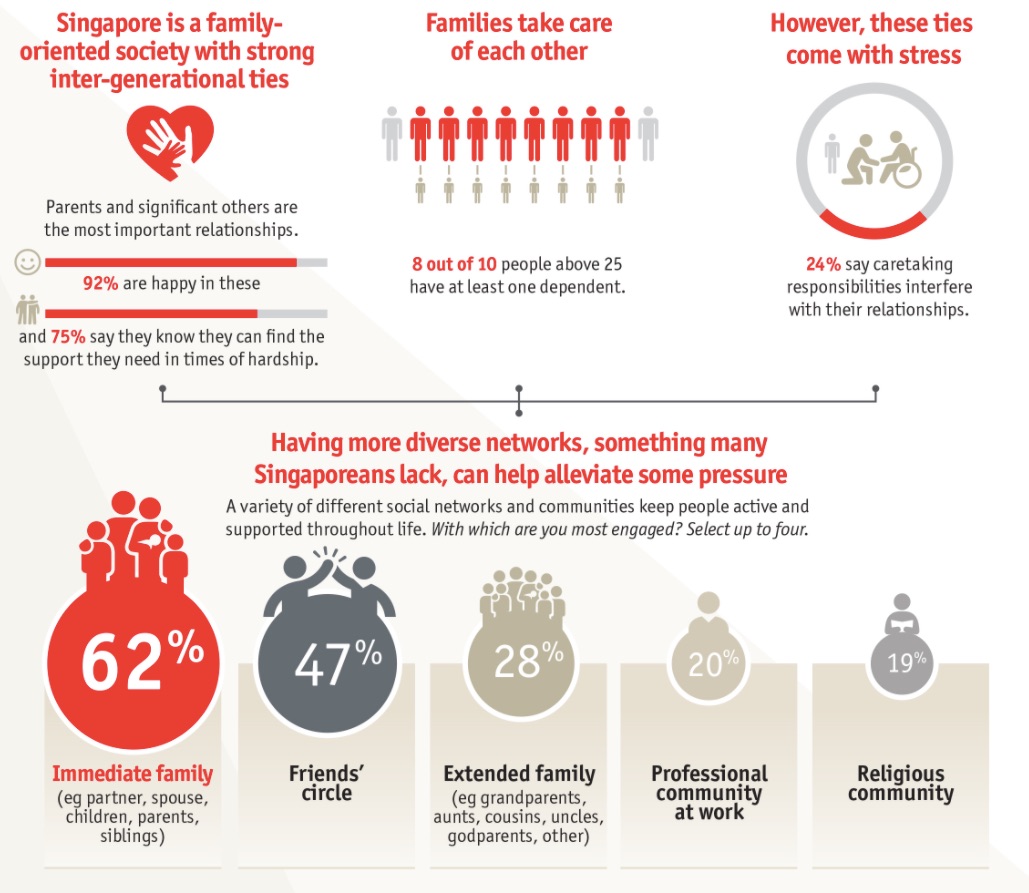
Living well in old age: learning from inspiring super agers
Singaporeans are making a lasting impression like nowhere else in the world: a report by the Ministry of Health in collaboration with the Institute of Health Metrics and Evaluation revealed we are now the longest-living people on Earth, with average life expectancy at 84.8 years. And experts predict this figure will only rise. However, the same report found that while Singaporeans are living longer, we also spend more time in ill health — up to 10.6 years. Today, the focus is no longer just about living longer; it’s about quality of life.
When it comes to successful ageing, we can look to super agers like Kor Hong Fatt as a source of inspiration: when he was 86, he raised the bar as the oldest local participant of the Standard Chartered Singapore Marathon. Those in the scientific community define super agers like Kor as seniors in their 70s and 80s who’ve maintained the mental and physical capabilities of their younger counterparts.
However, successful ageing isn’t merely about physical ability — in a study on the subject for the University of Montana, Jane Fowler and Mark Kunik stressed that the psychological and social aspects are equally important. “Those that are most likely to age well have good physical and psychological health as well as a social support network. Successful ageing is not only the absence of chronic illness, but the perceived life satisfaction of the elderly person,” they say. Here, we uncover more about what ageing well means and some of the things you can do if you too aspire to be a super ager.

Stay on your feet
Couple Poon Park Lin and Chan Sit Ying are often mistaken for being younger than their actual ages. At 85 and 78 years respectively, the grandparents of eight live in the home where they raised their children and keep themselves busy. “If you call our house during the day, there probably isn’t anyone here to answer the phone,” chuckles Chan.
That’s because three times a week, Poon visits the headquarters of Red Swastika Society, where he leads prayers as a volunteer. Meanwhile, Chan’s morning routine has long consisted of a walk in her neighbourhood.
Keeping active has clear benefits: evidence published in the journal Biogerontology shows that maintaining regular physical activity in old age can help lower risks for age-related illnesses such as cardiovascular disease and muscular weakness.
Doctor Ad Maulod, a cultural anthropologist and research fellow at Duke-NUS’s Centre for Ageing Research & Education (CARE) concurs, noting that the definition of successful ageing has expanded beyond being free from disease and disability, and remaining cognitively able in recent years. “It’s more than just about maintaining your health and status,” he points out. “Ageing well is also about being able to meet one’s basic needs to live a dignified life, including engaging in meaningful activities and contributing back to society.”
Nourish your soul with relationships
The remarkable Harvard Study of Adult Development, an 80-year study exploring how to lead happy, healthy lives, found that relationships have a significant impact. It showed that those with close relationships were happier throughout their lives, a finding Dr Maulod can attest to after having spoken with over 20 centenarians — those over 100 years of age — for his own research project at CARE. “The ones who expressed fulfilment were cherished and well taken care of by their families,” he says, adding that most centenarians said that their families were the source of their life purpose.
For those who live apart from their children like Chan, maintaining social relationships can help provide similar emotional nourishment during one’s golden years. “Close friendships are important as they keep people engaged,” notes Dr Maulod. As a self-professed chatterbox, Chan finds joy in being able to connect with old friends, and the everyday encounters from her morning walks. “I think she knows just about everyone in our entire neighbourhood,” laughs her husband Poon.
According to Prudential’s Ready for 100 Report, “Singaporeans are focused on family, but less connected to other communities. Diverse relationships are key to living long and well.” This variety of social networks and communities — such as a circle of friends, or professional community — helps keep people active and supported in life.

Staying engaged in relationships outside of the family extends your support network. Source: Ready for 100, The Economist
If you’re feeling as if you need to expand your network, consider joining a members’ club where you can forge new connections with like-minded people. Within Singapore, Crane Club and 1880, for example, have strong communities with accomplished and interesting individuals, and unique cultural programmes to engage in and learn from.
Develop meaningful habits
More than genetics or particular habits, Dr Maulod found that it was the enduring values that the centenarians he interviewed held, along with their sense of purpose for living a long, fulfilling life that helped them find meaning and happiness in old age and kept them going. These centenarians filled their time with activities that they found deeply meaningful, but were also useful to others. This could be as simple as preparing treasured meals for the family, or a commitment to a community, or a cause that is close to the heart via volunteering.
Consider becoming more deeply involved in an organisation that has always resonated with you. Or align volunteer work with a personal interest. If you have a long-time passion for art, history or culture, for example, you can fuel this — and make new connections — by training as a volunteer docent with Friends of the Museums Singapore.
While some find meaning in community, others like Poon may find their sense of purpose in religion. Aside from regular visits to Red Swastika Society’s headquarters to volunteer, the octogenarian also picked up meditation when he first joined the religious group some 50 years ago. Since then, he has committed an hour every day to meditating and credits this as the key to his mental clarity, a claim affirmed by a review of studies published in the Annals of the New York Academy of Sciences.
Ultimately, Dr Maulod says that it comes down to people’s resources and capacity to cope with ageing losses. “Many of the centenarians I spoke to never felt that their age was a limiting factor,” he says. In fact, it was only when their bodies started to fail them and they needed to depend on others that these super agers began to feel old and that life was starting to lose its meaning. “What a lot of people don’t realise is how important having a sense of independence and control over one’s life is to ageing well.”


